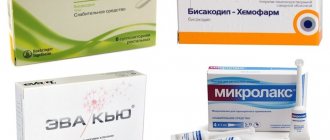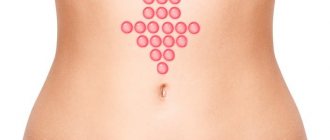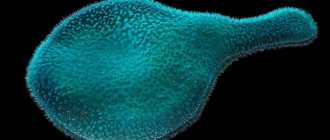Summer or vacation in warm countries is the best way to enjoy the gentle rays of the sun, stock up on vitamin D and get a beautiful, even tan. Even pregnancy should not be an obstacle to your favorite pastime. You just need to find out in advance how pregnant women can sunbathe in order to protect themselves from burns and get maximum pleasure.
Being in an “interesting position”, every woman becomes more careful. She tries to do everything that will be useful for her and her baby. For safety reasons, many expectant mothers completely avoid tanning and sun exposure. However, scientists have found that pregnant women can sunbathe. But in order for this to bring as much pleasure as possible and not harm, you need to adhere to simple rules.
The benefits of tanning during pregnancy
Ultra-violet rays
– natural radiation, which, at minimal doses, brings only benefits to the expectant mother and baby. Women who are interested in whether pregnant women can sunbathe should know that the sun's rays:
- lift your spirits;
- promote the synthesis of vitamin D, which improves the absorption of phosphorus, calcium, magnesium;
- prevent the development of osteoporosis;
- increase the level of hemoglobin in the blood;
- increase the effectiveness of therapeutic measures for acne, psoriasis and other skin diseases;
- strengthen the walls of blood vessels in the first stages of varicose veins;
- increase immunity;
- reduce the likelihood of developing colds and acute respiratory infections;
- promote the renewal of skin cells;
- improve metabolism.
See also: Mothercare School for Mothers - lectures on current topics about pregnancy and preparation for childbirth
This should also be learned by those women who are interested in whether pregnant women can sunbathe at sea.
Experts allow combining sunbathing and swimming in sea water. But you need to sunbathe and swim at certain hours and for a certain amount of time.
Hair care
There is an unusually persistent myth that pregnant women should not cut or dye their hair.
Where it came from is now difficult to understand, but nevertheless, in the antenatal clinic you will definitely meet several expectant mothers with noticeably grown hair roots and a haircut that has lost all shape. There is no scientific evidence that cutting or dyeing hair with modern gentle hair dyes can harm a pregnant woman or unborn child. Therefore, forget about grandma’s fears and feel free to go to the beauty salon! The only caveat is that don’t forget that after the birth of your baby, you most likely won’t have time for a hairdresser in the first months, so closer to the birth, get a haircut that will be easy to care for when you’re short on time.
Harmful tanning during pregnancy
Most scientists are still arguing about the benefits and harms of sunbathing while pregnant. It is worth noting here that in excessive quantities, sun rays are contraindicated for everyone, regardless of age, gender or physiological condition. Scientific studies have shown that prolonged exposure of the expectant mother to ultraviolet radiation and high temperatures can affect the development of the fetal nervous system. Therefore, if you are planning a trip to the sea or to another sunny region, be sure to consult your doctor first.
What is the harm?
While talking about the benefits of solarium, we cannot ignore its negative aspects, since ultraviolet rays are not as safe as many would like. The disadvantages of artificial tanning include:
- Partial destruction of the structure of the upper layers of the skin, which leads to dehydration and aging of cells.
- Hardening of the skin and clogged pores.
- Deterioration of hair condition.
- Risk of severe burns.
- Development of tumors (with frequent use of solariums).
- Exacerbation of some chronic diseases.
Important! If you follow the safety rules for using a solarium and do not abuse it, the listed disadvantages can be nullified. To avoid problems, it is recommended to consult with an experienced specialist.
Contraindications for tanning during pregnancy
Sunbathing should be taken in doses, regardless of age and physiological condition. As soon as discomfort and unpleasant sensations appear, you must immediately stop contact with the sun and consult a specialist. Before you think about whether pregnant women can sunbathe, you need to determine whether you have the following contraindications:
- allergy to sun rays;
- unstable pressure, which due to sun exposure can provoke uterine hypertonicity and bleeding;
- threat of spontaneous abortion;
- pronounced varicose veins, in which thermoregulation may be disrupted, blood pressure may decrease, and congestion may develop;
- light skin prone to burns;
- tendency to hyperpigmentation;
- diabetes mellitus of any type;
- diseases of the thyroid gland and other organs of the endocrine system;
- mastopathy at any stage;
- diseases of the cardiovascular system.
Read also: Traveling with a child correctly
But even in the absence of these contraindications, a pregnant woman should not stay in the sun when the air temperature exceeds +30 degrees. This will lead to overheating of the body, which will negatively affect the condition of the internal organs. Further, it can provoke fainting from heat stroke and relaxation of the smooth muscles of the uterus, which causes uterine bleeding.
You should be especially careful in the first trimester of pregnancy. In particular, in the early stages of gestation it is necessary to avoid not only open sunlight, but also long stays in a bathhouse, sauna or hot tub. In the last trimester, exposure to sunlight and high temperatures can cause premature birth.
Cosmetics
It is forbidden
Products with retinoids are strictly prohibited during pregnancy, breastfeeding and three months before a planned pregnancy - they can have a teratogenic and embryotoxic effect, that is, negatively affect the fetus and increase the risk of congenital malformations. Therefore, products with retinoids are prescribed only if there is a negative pregnancy test and reliable contraception.
It is undesirable to use drugs containing acids during pregnancy. These are quite aggressive agents, and during pregnancy they can cause an unpredictable reaction: irritation, pigmentation disorders (lightening of some areas or, conversely, the appearance of dark spots), etc.
You should not use creams containing hormones (usually these are cosmetics that fight the signs of aging), because the body already undergoes powerful hormonal changes during pregnancy and lactation; you should not additionally load it.
Need to!
Be sure to use sunscreen during pregnancy. This is due to the fact that hormonal changes in the body often provoke the development of hyperpigmentation. And the sun's rays make this problem worse.
Remedies against stretch marks. Striae or stretch marks are such an unpleasant phenomenon that it is much easier to prevent than to get rid of it later. Be sure to use good anti-stretch mark creams from the very beginning of pregnancy, applying them with massaging movements to problem areas: chest, shoulders, abdomen, hips, buttocks. By the way, stretch marks often appear after childbirth, during lactation - after all, a nursing woman’s breasts can increase by several sizes compared to their normal state. Therefore, do not forget about the prevention of stretch marks throughout the entire period of breastfeeding.
Tanning in a solarium during pregnancy
Official medicine still cannot give an exact answer to whether a pregnant woman can sunbathe in a solarium. However, it is worth noting that there is still some benefit to this:
- 1. Under the influence of artificial ultraviolet radiation, metabolism is activated, which is necessary for adequate nutrition of the baby and stable functioning of the endocrine system. If you visit the solarium in accordance with the recommendations, you can avoid oxygen starvation of tissues and hormonal disorders.
- 2. During a solarium session, vitamin D is synthesized, on which the functioning of the nervous system and the psycho-emotional state of the mother depend. This substance also affects the rate of absorption of phosphorus and calcium, which strengthen and support the musculoskeletal system.
- 3. Solarium helps dry the skin and speed up its cleansing. This is especially important if the pregnant woman is worried about eczema, acne, psoriasis or other dermatological disease.
- 4. Each session helps strengthen the immune system and reduce the risk of developing a viral or infectious disease.
This effect can be achieved only if, when visiting a solarium, you adhere to a certain scheme developed by a gynecologist or attending physician. Otherwise, artificial tanning will cause:
- pigmentation of almost 100% of the skin surface, which will be almost impossible to remove after childbirth;
- early miscarriage or spontaneous abortion;
- fetal death;
- destruction of folic acid, on which the formation of fetal organs and systems depends.
Read also: How to protect your child from the sun
Doctors do not recommend visiting a solarium during the 2nd-3rd trimester. At this stage, artificial tanning causes burns in the abdomen and throughout the body, hypertension, swelling of the lower extremities, and dehydration. As with natural tanning, a pregnant woman should avoid visiting a solarium if she has the following contraindications:
- hypertension,
- risk of miscarriage,
- fetal development problems,
- swelling of the face and legs,
- dermatological diseases,
- hormonal disorders,
- viral or infectious disease,
- oncology,
- autoimmune infections.
If the expectant mother is determined to sunbathe a little, she should choose a vertical booth. This will help avoid pinching the blood vessels of the uterus. In addition, contact lenses and cosmetics should be removed. You should stop using tanning products. The optimal time to stay in the booth is 3 minutes.
Double beauty
Pregnancy is a wonderful time in a woman’s life. But often expectant mothers, as well as young mothers breastfeeding, are upset by the presence of many restrictions in all areas of life - from nutrition to sports and recreation. In particular, there are many prohibitions in the matter of self-care. But you really want to be beautiful during this magical period of your life, and modern women are usually not ready to just give up going to a cosmetologist and using a variety of cosmetics for several years.
Fortunately, it is not at all necessary to wrap yourself in a burqa for this entire period and use exclusively baby cream and a cucumber mask. Let's, together with the cosmetologist of the EuroMed Clinic, Svetlana Mikhailovna Lexandrova, figure out what is actually prohibited during this period and what is not.
Rules for safe tanning during pregnancy
As we have already found out, pregnant women can sunbathe. The main thing is to follow certain rules:
- 1. The best time for tanning is morning (before 10:00) and evening (after 17:00).
- 2. When tanning, you must cover your head with a Panama hat or a hat, and also use sunglasses. This will reduce the chance of overheating.
- 3. During prolonged exposure to the sun, you should drink plenty of non-mineral and still water.
- 4. You should not go to the beach on an empty stomach, so as not to provoke an increase in body temperature or loss of strength. If you sunbathe, on the contrary, with a full stomach, you may feel unwell. It's better to take some fruit with you.
- 5. You can’t be exposed to the sun all the time. Even lying on a sun lounger under an umbrella or in the shade, you can get a good tan.
- 6. Before going to the beach, you need to thoroughly lubricate exposed areas of your body with sunscreen or lotion with a high SPF factor.
- 7. When going to the beach, it is better to choose loose-fitting clothes made from natural fabrics. It should give freedom of movement, allowing the skin to breathe.
- 8. To avoid overheating, you need to sunbathe while lying on a sun lounger, not on the sand. To prevent swelling, the legs should be higher than the body.
- 9. After sun exposure, apply a delicate moisturizer or cosmetic oil to your skin.
- 10. If your legs feel heavy and tired from long walks on the beach, you need to do a light massage using a soothing and cooling gel.
The duration of sunbathing should be increased gradually, starting from 10-15 minutes. You can combine sun exposure with swimming. This will help you feel better, relieve your back, and work out your muscles. At any stage, you should choose a one-piece swimsuit that covers your belly well. In the third trimester, it is better to choose a model with support for the back and abdomen.
Share this article
Salon treatments
Many people forget the way to a cosmetologist as soon as they see two lines on the test. This is a completely unnecessary sacrifice! Yes, there are certain procedures that are not recommended during pregnancy, but most skincare programs are quite affordable and will help maintain your beauty during this wonderful period. Just remember to notify the cosmetologist about your interesting situation, and the doctor will offer you suitable care.
It would also be a good idea to consult with the obstetrician-gynecologist who is caring for your pregnancy.
It is forbidden
- Procedures associated with a sharp change in temperature: cryosauna, hot wrap, etc.
- Hardware stimulating procedures can provoke contraction of the uterine muscles.
- Laser procedures and photorejuvenation.
- Injection techniques.
Massage
There is a widespread belief that pregnant women should not receive massage. In fact, it is possible, but only if the massage therapist has the appropriate qualifications. Regular massage can cause undesirable consequences. But a special massage for pregnant women, on the contrary, will significantly improve your well-being and condition. During this difficult period, when increasing weight, swelling, increased stress on the back and legs can cause many unpleasant moments, an experienced massage therapist will be of great help.
The main thing to remember is to be less nervous, don’t let meaningless restrictions poison your life and enjoy every moment of your magical state!
What do scientists think about solariums?
Healthy skin
How to keep your skin healthy? Nutrition and water, sun and bad habits, sleep and the health of the body as a whole - Anna Kubanova, director of the State Scientific Center for Dermatovenereology, talks about the factors influencing skin health.
“A good example of the effects of ultraviolet radiation, or, in other words, UV rays, is the use of “blue” lamps to disinfect medical instruments, operating rooms and other hospital rooms,” says Chub.
“UV rays kill most bacteria.” According to various studies, addiction to tanning in solariums in people under the age of 30 increases the risk of developing one of the most dangerous types of malignant tumors - melanoma
.
This is why several years ago the UK banned the provision of solarium services to minors. And in 2009, the World Health Organization (WHO) classified tanning beds as one of the most significant risk factors for cancer
. This category also includes tobacco, asbestos, arsenic and other recognized carcinogens. Now WHO categorically does not recommend using tanning beds for cosmetic purposes.
Why don't tanning beds improve your appearance?
UVA rays destroy collagen and elastin
, which are responsible for the elasticity of the skin, and dry it out.
Cosmetologists believe that those who tan in solariums gradually become dull and, after the tan fades, acquire a grayish tint. And the tan itself from a solarium often turns out to be an unnatural shade. In addition, all wrinkles and age spots become clearly visible on the skin. The solarium does not improve her condition - it does not help with acne and other skin problems. “Tanning beds don’t cure acne,” says Chub. “Simply stimulating the immune system with excess UVA radiation
gives it a jolt for a while But if you are constantly exposed to sunlight, your skin suffers even more.”
Why are solariums harmful?
Ultraviolet rays reaching the Earth's surface are divided into two types: A (UVA) and B (UVB)
.
UVB rays primarily cause thermal sunburn. Type A rays can penetrate into the deep layers of the skin - the dermis. They can suppress the immune system, destroy cell DNA and cause cancer. With uncontrolled exposure, ultraviolet rays become the No. 1 factor in the development of skin cancer
.
Moreover, it does not matter what the origin of UVA rays is - from the sun or a lamp in a solarium - they are equally dangerous. The radiation from solarium lamps, like sunlight, contains mainly UVA rays. However, in tanning salons, a person receives a dose of ultraviolet radiation that is more than 10 times higher than normal solar radiation
. According to various estimates, 10 minutes - the standard time spent in a solarium - can be equated to two hours of exposure to the southern sun. UVA rays provoke increased formation of the melanin pigment, which turns the skin brown. And this leads to the development of melanoma - the most common malignant tumor, frequent cases of which are associated with the passion for tanning.









